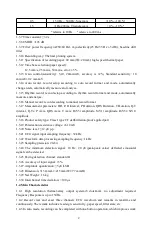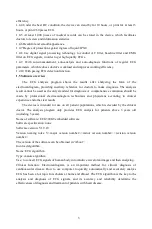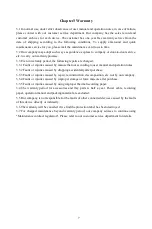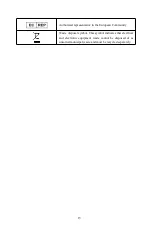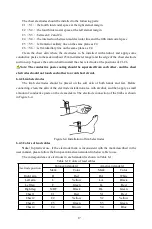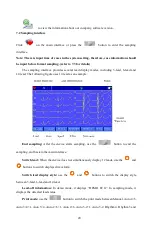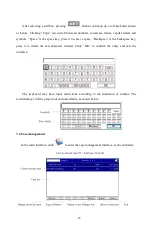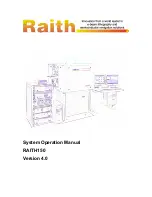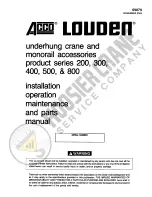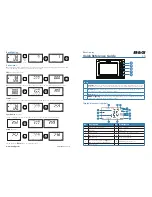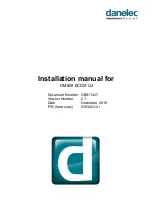
.
8
Chapter4 Working Principle and Structural Characteristics
4.1 Working principle and its block diagram
4.1.1 The power supply unit
Principle of power supply
After the AC power supply enters the switching power supply, it is converted to DC voltage
and supplied to the DC-DC power unit, it also provides constant voltage current limiting
charging for the rechargeable lithium battery in the device through the DC-DC circuit, and
gen5V and +8.5V voltage through the power conversion to supply power to the
corresponding modules. At the same time, the lithium battery in the device can independently
satisfy working requirements of each module in the device through the buck-boost circuit.
Note: The principle block diagram and component list are only available to service
stations or maintenance personnel designated by our company.
4.1.2 Signal acquisition unit
The signal acquisition unit uses a floating setting, which is a signal acquisition and
processing system, including analog circuit part and A/D conversion (with sampling accuracy of
24 bits) and data processing part. The analog circuit consists of signal following, amplification,
anti-aliasing low-pass filtering, lead-off detection and overload detection. CPU system is
responsible for coordinating the work of each circuit such as the A/D converter, the lead-off
detection circuit and the overload detection circuit, in order to achieve signal acquisition,
processing, and lead-off detection. Control information and A/D conversion and data acquisition
between the floating circuit and the solid circuit are transmitted through the optoelectronic
coupler.
4.1.3 Control unit
(
1
)
Principle of control unit
The control system consists of printing system, button system, liquid crystal display system,
and signal acquisition system. The ECG signal sent from the signal acquisition system through
the high-speed optoelectronic coupler is received by the CPU system, after digital filtering, gain
adjustment and motor drive, it is sent to the printing system to print the ECG waveform. After
the printing is completed, the CPU system processes waveform measurement and analysis. The
CPU system also receives an interrupt signal and button code from the button system to complete
the interrupt processing. In addition, the lead-off signal, paper out detection, battery voltage
management, and automatic power-off are also managed by the CPU system. The liquid crystal
controller receives data and commands from the CPU system to complete the display of the
control state of the device.







